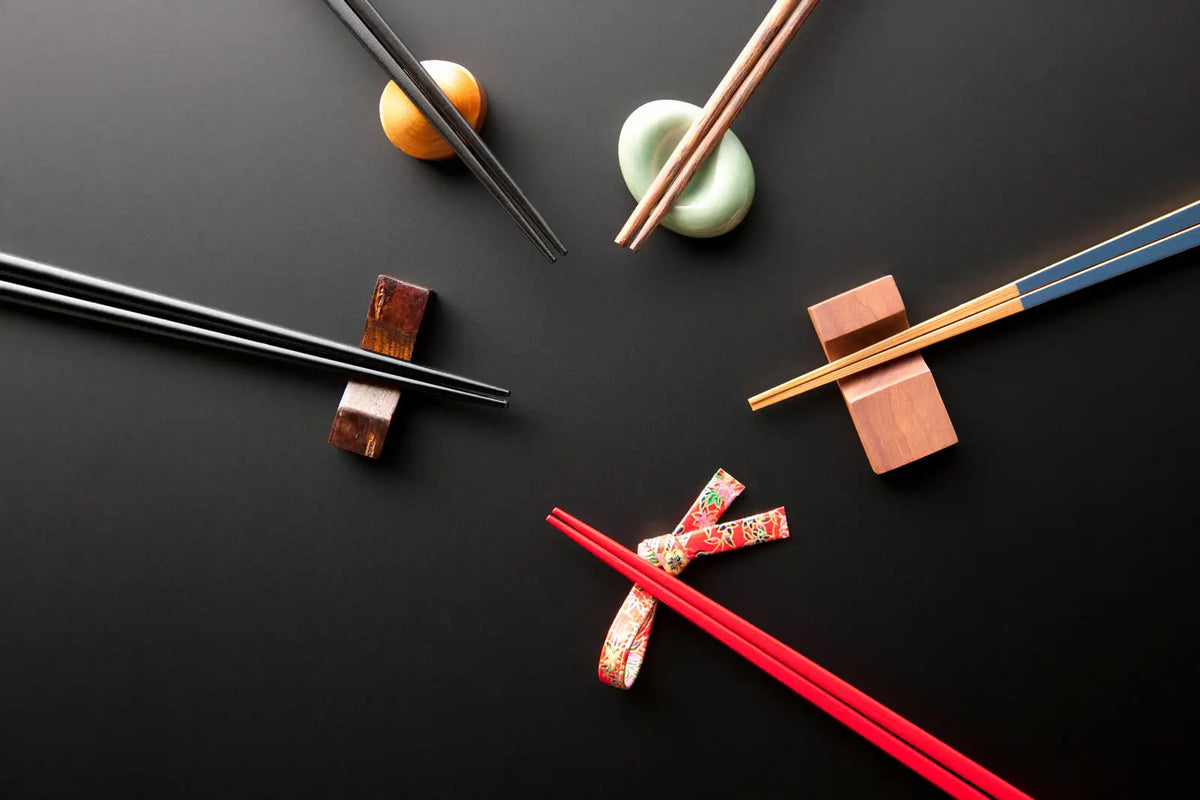

Introduction to Hashimakura
Hashimakura, a term that might not be immediately familiar to many outside Japan, refers to chopstick rests. They are a quintessential part of Japanese dining, serving not only a functional purpose but also enhancing the aesthetic of the dining experience. The careful placement of chopsticks has historical roots, representing an integral aspect of Japanese etiquette and mindfulness.
Many travelers and culture enthusiasts discover that even the smallest items in Japanese culture carry significant meaning. By exploring hashimakura, you will uncover not only their practical use but also the stories they tell about Japanese dining rituals and craftsmanship.
The Importance of Chopstick Etiquette
Chopstick etiquette is an essential aspect of dining in Japan. It reflects respect for food, tradition, and the people you share a meal with. Hashimakura helps maintain this etiquette by providing a designated place to rest chopsticks, preventing them from touching the table or rolling off.
Understanding these customs is crucial for anyone interested in Japanese culture. Whether you're visiting Japan or dining at a Japanese restaurant abroad, mastering chopstick etiquette demonstrates cultural appreciation and awareness.
Artistic Expression in Everyday Dining
Hashimakura transcends its functional role by becoming a form of artistic expression. Crafted from various materials like ceramic, wood, and glass, these small rests often feature intricate designs and motifs inspired by nature, seasons, or cultural symbols.
For artisans and craftspeople, creating hashimakura is a way to express creativity and honor traditional techniques. Each piece tells a story, making your dining experience richer and more engaging. Collecting hashimakura can even become a delightful hobby for those who appreciate Japanese aesthetics.
Incorporating Hashimakura into Home Dining
Bringing a touch of Japanese culture into your home is as simple as incorporating hashimakura into your dining setup. Not only do these rests add authenticity to your meals, but they also encourage mindfulness and appreciation for the food before you.
Setting your table with hashimakura can transport you to Japan, enhancing your dining experience with a sense of ritual and elegance. It's an opportunity to slow down, savor each bite, and connect with Japanese traditions from the comfort of your home.
Exploring Hashimakura Designs and Themes
The variety of hashimakura designs is vast and captivating. From seasonal themes like cherry blossoms in spring to festive motifs for the New Year, hashimakura offers endless possibilities for personal expression and celebration.
Exploring these designs reveals Japan's deep connection to nature and its changing seasons. Each hashimakura can be a conversation starter, sparking interest in the cultural stories and artistic traditions behind its creation.
The Cultural Significance of Dining Rituals
Dining in Japan is more than just eating; it's a cultural ritual steeped in respect and gratitude. Hashimakura plays a role in this ritual, reminding diners to approach their meal with mindfulness and appreciation.
Understanding these rituals enriches one's travel experiences in Japan, offering insights into the values that shape Japanese society. These practices highlight the importance of community, respect, and harmony in everyday interactions.
Collecting Hashimakura as Souvenirs
For travelers and Japan enthusiasts, collecting hashimakura can be a rewarding endeavor. They make unique and meaningful souvenirs, capturing the essence of Japanese dining culture and craftsmanship.
Each hashimakura you collect tells a story of where it was made, who crafted it, and the cultural inspirations behind its design. Displaying them in your home becomes a testament to your love for Japanese culture and your experiences exploring its many facets.
Incorporating Japanese Snacks and Tea
Pairing your hashimakura collection with Japanese snacks and tea creates a complete cultural experience. These elements complement one another, enhancing your appreciation for the flavors and textures of Japanese cuisine.
Japanese snacks and tea have their own rich histories and cultural significance, offering a sensory exploration of Japan's culinary landscape. They provide a deeper connection to the traditions and tastes of Japan, making every meal more enjoyable and enlightening.
Engaging with the Japanese Community
Engaging with local Japanese communities, whether online or during travels, offers opportunities to learn more about hashimakura and Japanese dining customs. Participate in forums, attend workshops, or visit local markets to discover new designs and techniques.
Building connections with artisans and enthusiasts can deepen your understanding of hashimakura, providing insights into the cultural and historical contexts that shape their creation. This engagement fosters a sense of community and shared passion for Japanese culture.
Exploring Further Resources
For those eager to learn more about hashimakura and Japanese culture, numerous resources are available. Books, websites, and online courses offer in-depth knowledge and practical advice for incorporating these practices into your life.
By exploring these resources, you can expand your appreciation for Japanese culture, gaining new perspectives and skills that enrich your personal and professional endeavors. These resources provide a roadmap for ongoing exploration and discovery.
The Journey Towards Cultural Appreciation
The exploration of hashimakura is just one step in the broader journey towards understanding and appreciating Japanese culture. It opens doors to new experiences, connections, and insights that enhance your worldview and enrich your life.
By immersing yourself in the traditions and practices of Japan, you cultivate a deeper appreciation for its cultural heritage, fostering respect and admiration for its people and history.
Conclusion
Hashimakura may be a small element of Japanese dining, but it holds significant cultural weight. Through their craftsmanship and symbolism, they invite us to explore and appreciate the richness of Japanese culture.
For those passionate about Japan, whether through food, travel, or cultural exploration, hashimakura offers a unique lens through which to view the country's traditions and values. By incorporating these small yet meaningful items into your life, you connect with a heritage that spans centuries, deepening your appreciation for the art of dining and the cultural stories it tells.
For further exploration into Japanese culture, cuisine, and travel experiences, consider engaging with the resources and communities available. Your journey into the heart of Japan is only just beginning.



